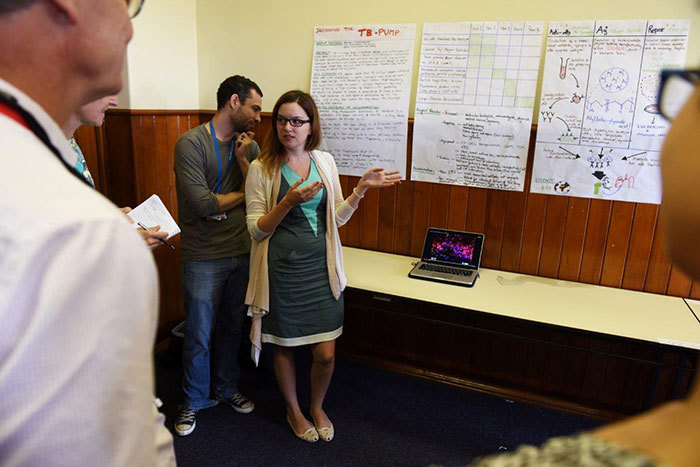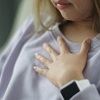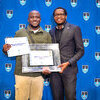Ace networking and collaboration skills needed for global research
09 February 2015 | Story by Newsroom
With so many areas of need in the global health arena, research opportunities abound. But world-class research is increasingly dependent on sound networking and collaboration skills, PhD fellows learnt at the recent Imperial-UCT Global Health Fellows Programme.
This week-long summer school, hosted on upper campus in late January, is a collaboration and capacity development project run by Imperial College, London, and UCT, via its Clinical Infectious Diseases Research Initiative.
The initiative fosters greater consciousness of global health research and prepares PhD students (representing multiple countries at the summer school) for world-class, international collaboration.
As such, much of the week saw the students learning new skills in the areas of effective and creative teamwork, communication in diverse groups, intercultural and international awareness.
Activities culminated in group project proposals, from which three finalists were chosen by judges drawn from senior researchers involved in the programme.
Winning proposals
The winning project proposal described a new pump to easily administer an inhaled drug for treating and controlling lung injury and loss of function caused by TB. The project harnessed three parallel drug development branches, combined in one product to expedite drug delivery.
Team members Tim Ellis, Joana Alcada and Ashley Jacobs are attached to Imperial College. Jacobs is also a UCT health sciences graduate, one of several among the fellows.
Runner-up proposals reflected the fellows' diverse research interests: One was a proposal for analysing the genetic factors of cardiovascular disease in a Bayesian framework. Cardiovascular disease involves the heart and blood vessels and is the main cause of death in the world. Several genes contribute to the disease and statistical methods have been used to understand this relationship.
But traditional statistical techniques have limitations and the group proposed using a Bayesian framework, where Bayes' rule is used to update the probability for truth of a hypothesis as evidence is acquired.
The second runner up-project was a model for an agricultural microfinance project to address sustainable development in a vulnerable population. Here, microfinance would be used to provide 100 women in Khayelitsha with small plots to farm, using donated seed and fertiliser. As women bear the economic brunt of HIV and TB, and are most often the heads of households, the idea is to empower them while also creating greener, more sustainable townships.
The judging panel harnessed the "assembled wisdom" of Professors Tumani Corrah (director of Africa Research Development at the UK MRC, based in Gambia), Kathryn Maitland (Paediatric Infectious Diseases at Imperial College, based at the Kenya Medical Research Institute), Robert Wilkinson (director of UCT's Clinical Infectious Diseases Research Initiative, and Imperial College London), Tania Douglas (deputy dean for health science research at UCT), and Dr Hanif Esmail (Oxford/Imperial/UCT).
Comorbidity driving TB
Delayed by snowstorms over New York, Wilkinson arrived in blisteringly hot weather to address the fellows on global health trends, specifically with regard to HIV and TB.
A Wellcome Trust Senior Fellow, Wilkinson is also professor in infectious diseases at Imperial College London and MRC programme leader at the National Institute for Medical Research.
In Cape Town, much of his research stems from work in resource-poor settings like Khayelitsha, the city's largest township, where poverty and unemployment create conditions ripe for disease.
Setting the scene for fellows, Wilkinson said that until the rise of HIV, TB had generally become more manageable. But comorbidity had resulted in an estimated 1.1 million cases of HIV-associated TB each year, with 78% of these cases in Africa.
Globally, 0.36 million (360 000) people died of HIV-associated TB in 2013 (64 000 in South Africa). The statistics are even more compelling on a local scale when one considers that Khayelitsha has about as many cases of TB a year as Germany.
But where there is need, there are good research opportunities, said Wilkinson. And good research is increasingly dependent on networking and collaboration.
Winning team member Alcada agreed. "[Collaborating] makes you think out of the box ... and collaboration increases the impact of research to many more people."
Ellis added: "You're meeting people, not just the science behind it; minds that work differently. It's not good for scientists to work alone."
Jacobs endorsed this: "It's been very stimulating to work with people from different backgrounds on a common goal."
Advice for the fellows came from seasoned panelists like Maitland. With a professional life devoted to medicine in resource-poor settings in East Africa, the paediatrician encouraged the fellows to think 'group'.
"Networks are effective in answering a [medical research] question effectively ... you have to work in a partnership."
Wilkinson's pragmatic advice in times of funding austerity was simply: "The best incentive for researchers to work together is money."
But he also cautioned against the ill effects of enforced collaboration, with a pithy reminder to the fellows that "a camel is a race horse designed by a committee".
Story by Helen Swingler. Photo by Michael Hammond.
 This work is licensed under a Creative Commons Attribution-NoDerivatives 4.0 International License.
This work is licensed under a Creative Commons Attribution-NoDerivatives 4.0 International License.
Please view the republishing articles page for more information.










